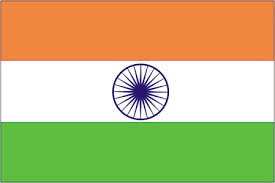STATEMENT BY AMBASSADOR ANUPAM RAY AT THE CONFERENCE ON DISARMAMENT THEMATIC DEBATE ON AGENDA ITEM #1 - "CESSATION OF THE NUCLEAR ARMS AND NUCLEAR DISARMAMENT", GENEVA, MARCH 21, 2024
Statement by Ambassador Anupam Ray at the Conference on Disarmament thematic debate on Agenda Item #1 - “Cessation of the nuclear arms and nuclear disarmament”, Geneva, March 21, 2024
Thank you, Mr. President,
Let me begin by wishing everyone a Happy Navroz - a festival we celebrate with the Parsi and Zoroastrian community in India.
The CD as the single multilateral negotiating forum on disarmament includes all nuclear weapon States among its members. It therefore not only bears the primary responsibility but is also uniquely placed in advancing the shared goal of global nuclear disarmament.
India is a Nuclear Weapon State and, as a responsible Nuclear Weapon State, has a policy of maintaining a credible minimum deterrence based on a No - First Use posture and non-use of nuclear weapons against non-nuclear weapon states.
Mr. President,
India remains committed to universal, non-discriminatory and verifiable nuclear disarmament.
It has played an active role in the international community’s endeavours towards this goal.
India was the first country to call for a ban on nuclear testing in 1954 and a nondiscriminatory treaty on the non-proliferation of nuclear weapons, as distinct from non-dissemination in 1965.
In 1978, India proposed the negotiation of an international convention that would prohibit the use or threat of use of nuclear weapons.
In 1988, India presented an Action Plan to the UN General Assembly that provided a holistic framework seeking negotiations for a time-bound commitment for the complete elimination of nuclear weapons.
In 1996, India along with other G21 members, submitted to the CD a Programme of Action for the elimination of nuclear weapons, as contained in document CD/1419. This was further endorsed by the G21 in documents CD/1570 and CD/1571.
In 2007, India submitted a national working paper to the CD, as contained in CD/1816, which made a number of proposals towards the goal of nuclear disarmament.
Mr. President,
It is our view that nuclear disarmament can be achieved through a step-by-step process underwritten by a universal commitment and an agreed global and nondiscriminatory multilateral framework based on the following elements:
- Reaffirmation of the un-equivocal commitment of all nuclear weapon States to thegoal of complete elimination of nuclear weapons;
- Adoption of measures to reduce nuclear danger, including the risks of accidentalnuclear war;
- Negotiation of a global agreement among nuclear weapon States on ‘no-first-use’of nuclear-weapons;
- Negotiation of a universal and legally-binding agreement on non-use of nuclearweapons against non-nuclear weapon States;
- Negotiation of a Convention on the prohibition of the use or threat of use ofnuclear weapons;
- Negotiation of a Nuclear Weapons Convention prohibiting the development,production, stockpiling and use of nuclear weapons and on their destruction, leading to the global, non-discriminatory and verifiable elimination of nuclear weapons within a specified timeframe.
Mr. President,
India’s annual UN General Assembly resolution on a “Convention on the Prohibition of the use of Nuclear Weapons”, tabled since 1982 in the UNGA, requests the CD to commence negotiations on an international convention prohibiting the use or threat of use of nuclear weapons under any circumstances.
Without prejudice to the priority we attach to nuclear disarmament, India looks forward to commence negotiations on a Fissile Material Cut-Off Treaty (FMCT) based on CD/1299 and the mandate contained therein.
India would like to reiterate that the Treaty on Prohibition of NuclearWeapons, negotiated outside the CD, does not create any obligation for India. India believes that this Treaty, in no way, constitute or contributes to the development of any customary international law. However, India stands ready to work with all countries to achieve our shared goal of nuclear disarmament.
Mr. President,
India believes that a climate of trust and confidence, coupled with political will and intensified dialogue among States, will help achieve consensus towards the shared objective of a world free of nuclear weapons.












